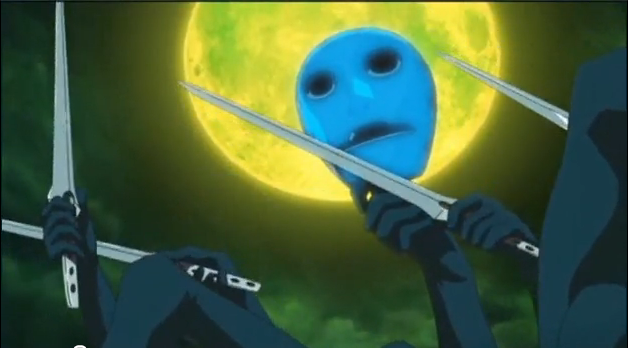
text from Terry Pratchett; art by Higgs who's tumblr i've linked
i can't rember which book this is from -- i wanna say it's Men at Arms but it could even be Guards Guards. Higgs seems to think it's Night Watch, but I'm pretty sure it happened before that...
in the post here
I actually have this idea that this "boots" theory is outdated and/or harmful. I'll explain.
The theory seems to be rooted in a time period where manufacturing was local and mass production and shrinkflation was not as advanced a thing as it is now.
So back then, you could buy the same $10 boots every year or the $50 boots every decade and get the same boots each time you purchase. At least, the same to some degree.
However, all boot manufacturing is now outsourced slave labor and shrinkflation is a universal strategy. Consumers get worse boots every year while they believe they are purchasing the same boots as last time.
Price discrimination gets you prettier boots or branding but not as much quality. The markets where this is the opposite are usually luxuries like cellphones, laptops, TVs.
Boots theory might actually still apply to boots (my soy hands have never touched a boot of work). But for the greater mass market of all general products, rugpulls (cashing out on brand's historic quality reputation) and shrinkflation are now so standard and ubiquitous that word of mouth quality from a year ago is quickly outdated and worthless.
The default scenario is now the workers put those $50 boots on credit and still receive the $10 boots anyways.
I agree that the example is rather idealized. I think the benefit of the Boots Theory is getting the idea in people's heads, encouraging them to think about how expenses and money can change with class. A difference in scale becomes a difference in kind, and it's easier to notice that when you've already got a simple example you can easily wrap your head around.
An excellent
realround-world example would be a rent vs. mortgage. After 10 years, your typical renter has spent more on housing than they would have on a mortgage, and they're no closer to owning a home.I think it's an easy way to explain that "being poor is expensive". But most of the people who are receptive to this kind of messaging already are quite ahead of the large amount of people who would deny poor people's humanity whenever they can get away with it.
Folks reading this are already reading Discworld novels, so at least liberals and probably towards the left side of the liberal spectrum.
Thanks. I agree with your points and would like to add there are plenty of other reasons against that theory. People take it as theory for socioeconomic unfairness and think it explains a lot, but it is meant as a joke highlighting predatory pricing against the working class.
The default scenario is now the workers put those $50 boots on credit and still receive the $10 boots anyways.
That's the real kicker for the modern age. We can't even afford the shitty $10 boots
Also is a liberal way to run around surplus value extraction inherent to the production of commodities in a capitalist system. Seems to think it's the merchants swindling workers and not their employers predominantly.
merchants swindling workers and not their employers

it's not supposed to be an economic theory. it's one dumbass thinking about how expensive it is to be poor.
Price discrimination gets you prettier boots or branding but not as much quality. The markets where this is the opposite are usually luxuries like cellphones, laptops, TVs.
Even those fall off pretty fall off hard. I bought all the parts for my computer at around 500-600 bucks and I have no issue with playing any game or running any program. Sure, could I run ultra mega high graphic mode instead of mega high graphic mode if I spent 500 more? Yeah, but that doesn't really matter.
The diminishing returns of quality just scale up so god damn quick and depending on the product could even be outdated within a few years anyway.
It still does apply to boots. There are still brands that make durable, hardwearing footwear. Just having a goodyear last means you can replace the soles and extend the life of a pair of boots for a long, long time.
The boots theory is fun, but someone really needs to get Vimes to consider what happens when someone buys the boots store for $200,000 and it gives them $2,000 a month back.
Except nowadays the expensive as fuck boots also fall apart after six months
In my experience it goes:
Pay $100 for boots, falling apart in six months
Pay $400 for boots, falling apart in six months
I am using some products created in a state
 that doesn't exist anymore. Comparable Western products are mostly not functioning anymore - for that specific product line. Why?
that doesn't exist anymore. Comparable Western products are mostly not functioning anymore - for that specific product line. Why?Cause the planers did think about the resources used and lifetime of items and created long lasting products.
Years ago my wardrobe was basically just anything i could get from army surplus stores. Not only did that stuff last (and i still own), but it was also the cheapest place to shop. Now i barely bother buying clothes because they fall apart too quickly.
Army surplus stores have disappeared from the face of the earth. I miss 'em.
I got some great stuff from them over the years. One of the only places where i could get jeans that fit for $5 each. I still wear a lot of it, especially for my daily summer wear.
Where do you even buy it? I thought they all went out of business due to federal government procurement law changes.
I'd suggest finding some forums where construction workers, foundary workers, surveyors, park rangers, etc. hang out. They'll know what companies are making worthwhile boots right now and who is making shit. I can't remember how old my last pair of paratrooper boots are, but I want to say at least 7 years, probably more like a decade, and they're on their second or third pair of soles. They're corcorans. Currently 225ish, union made (I think) in PA.
I bought my first pair of Merrell hiking boots in about 1997. I started wearing them as my daily winter shoe in about 2003. I'm on my 2nd pair, but the tread is starting to wear down. I'll probably buy my 3rd pair this fall.
I thought about it, but the lining at the heels is wearing out too. I'm pretty satisfied with ~10 years per pair of boots.
The key word is "Good year welt". Boots with a goodyear welt can have the soles removed and replaced.
In my opinion, this theory is categorically wrong. The overwhelming majority of rich people got rich by chance, not by a string of good long-term decisions.
They buy the same low quality shoes that break just as fast as that of the poor, but they spend a lot more money on these shoes, and think that they are superior because of the high price point.
The only difference is that these people are so unbelievably, obscenely rich that no amount of bad choices could ever threaten their wealth. They can buy hundreds, thousands of overly expensive shoes and never feel any consequences for their choices.
The theory isn't explaining why some people are rich, it's explaining how expensive it is to be poor by showing that the rich can end up spending less on things that everyone needs over time.
It's a real phenomena, but passage is couched in the perspective of a fictional character in a fictional world. This isn't "the only reason", it's just one that stands out to the character.
to complicate things even more the setting is late medieval semi victorian
I'm gonna disagree with you there and say that expensive shoes are a lot more well-made than the crap you get at Wal-mart.
How do you know if a man is rich? Ask if he has a cobbler. The rich all do.
I bought $20 shoes for my restaurant job that lasted less than a month and made my knees hurt. I bought $200 shoes after that which lasted for years. I don't know if that applies to many other commodities, but in this case it was definitely worth it.
I think because shoes and footwear are used regularly and subject to constant wear and tear it's probably a place where quality really continues to matter. Walmart shoes are made out of shit materials and glued together. But a good pair of boots are made from quality leather, they have a good year welt, they've probably got a vibram sole. A lot of industries have stringent requirements on safety features like flame resistant, chemical resistant, puncture resistance, and steel toe caps that put a floor on how cheap manufacturer's can go before their product can no longer be used by a lot of workers.
It doesn't stop enshittification - Doc Marten's got sold a while ago and the post-sale boots are shit compared to the old ones, but you can only cheat so much with boots.
It depends. Some of the expensive stuff really is high quality, but yes a lot of that is equally trash and just being spent because they can. Honestly though for a lot of products as long as you don't go for the cheapest of cheap, they will be more than good enough for most.
I like the idea as a discussion when you're with people curious about leftist theory, but the wealthy person in this situation would not be caught dead wearing last season's boots. There's an element to waste that deprives people too.
Like when Nike would cut perfectly good shoes and pile them in dumpsters
Yeah, Men at Arms. Page 29 in the Harper paperback. He's thinking over his upcoming marriage and just how rich the bride to be is.
Vimes more or less realizes that the police are, in general, bad, but that the best they can do is act as a 'model' for society because they are an example of all the races working together for a common goal. Of course, by that point he has kinda become the thing he hates, an aristocrat, but he's generally focused more on being a parent and not being assassinated, and Carrot is the one generally in charge of doing the whole investigation thing.
The thing is that there is a distinction in T.P. between the Nightswatch, which is generally tasked with investigating crimes, and the City Guard, which are tasked with enforcing the law. The City Guard are always shown to be bad, self-interested and more or less incompetent at their jobs, while the Nightswatch is generally shown to be a mixed bag, but mostly bumbling and good-natured.
T.P. wasn't a strict leftist per-say, but he certainly strayed past lib and his fictional creations are always warped reflections of reality.
You're welcome!
Maybe one of these days I'll do a mega-post on Pratchett and the general socio-political and philosophical ideas he promotes through his fiction. He's been my favorite fiction author for more than twenty years now, and I think only Brennan Lee Mulligan has managed to even come close to capturing the level of wit and sensitivity through fiction, although Brennan has never written a book. Prachett, especially in his prime years of the late 90's and early '00s, really has a magical way of making you laugh and then smacking you over the head with some profound philosophical bullshit that is much more sophisticated than it has any right to be.
Absolutely. Terry Pratchett was very much of the opinion in his works that if we are going to reorganize society, it must be around (unsurprisingly) supporting independent geniuses and artisans, but somehow never letting them take over society because they are far too insane to be trusted for management. But that being said, he also recognized that there are ultimately forces outside of your control that dominate trends, artistic creations, and archetypes, usually as exemplified through Magic, most notably in Moving Pictures and Soul Music, and also recognize the crass consumerism attached to such movements, usually exemplified by CMOT Dibbler. But even then, Dibbler is more of a side-nuisance than an actual threat or the root of the problem (and is seen as a universal force in every culture rather than particular to economies-of-scale). The problem is that the 'Magic' is powerful and alluring, but also self-centered, possessive and destructive. But that being said, there is a difference in T.P. between Magic and magic, as usually exemplified by the difference between wizards and witches of which T.P. universally sides with the witches. Wisdom, for him, is the ability to recognize when Magic is happening and stop it from fucking stuff up, but then using and experiencing magic in your day to day life. T.P. is full of dualisms like this, where things are the same but different.
He also moved away (or made more complex, depends on your interpretation of the work, as things like the God of Evolution once again follow that dualistic model) from these conceptions of society in his later works, particularly in Going Postal and Making Money (where he literally theorizes a labor-value currency through a golem-based currency, which ultimately undermines itself when anyone can control the golems), but even then, those are all generally failed trends facilitated by either 'Technology' or 'Magic'. The big thing is that T.P. mostly finds everything about society and people in general to be pretty absurd, which is why I enjoy him. As you said, whatever brainworms he had, his ability to recognize and chart the absurd will always have me coming back to his books.
I have read the long earth trilogy! It's an interesting series, but not as interesting as something like Good Omens.
Latter books had less overall editorial work, as Pratchett wanted to get them out before health complications caught up with him. You get tightly choreographed, cleverly worded passages followed up with bits that feel more like a general outline than his usual stuff.
I thought it was from his very first appearance, and it just got repeated several times throughout the series?
His entry in the discworld wiki does mention that in "Guards! Guards!" (His first appearance) It's stated that he can tell where he is in ankh-morpork by the feel of the cobbles beneath his feet due to his thin boots. I'll take a quick look.
A third into the book and so far he's only worn sandals, not boots.
It's libs first critique of conservative talking points about the poor. Can be worthwhile rhetorically if someone earnestly believes that poor people make bad financial decisions and is willing to change their mind, but how often is that?
Huh, I feel like deep down a lot of conservatives know their post-hoc demonisations of the poor are crap, they just say stuff.
I think it varies but they quite often do actually believe someone can with enough protestant work ethic pull themselves up by their bootstraps
many are actually trying to help in their stupid stupid way
it's very good for showing how expensive it is to be poor, because a lot of people across the political spectrum just don't fucking get it
as demonstrated by a chunk of this thread lmao
Okay so according to the punks red wings, thoroughgoods, and solovairs are still good, and solovairs are making the boots Doc Marten's used to make before enshitifficationh set in. Gripfasts also come recommended. Corcoran's makes the OG paratrooper jump boots if you're in to that look. A lot of peoples till vouch for Red Wing but look up what you're getting because I've heard the quality on some models have gotten iffy.
Whatever you get must have a goodyear welt. That's an element in the boot's construction that allows a cobbler to remove the outsole and put a new sole on. It's key to getting a boot that will last for a decade or more.
Expect to pay 200-350$ for a good pair of boots. Yeah, they're expensive. But as Vime's says, you can spend some cash now on boots that will last for ten years +, or shell out 50-100$ for new shitty boots every year.
Also keep an eye on thrift stores, online exchanges, and if you know any old punks ask around if they've got old boots they don't use anymore. As long as the leather isn't cracked, torn, or dry rotted you can hit it with some leather conditioner and polish and slap new soles on (I recommend Vibrams. Costs more but they're hard wearing) and be GTG.
Jesus christ Solovair split with Docs in 1995. Dig a hole and throw me in it I'm old.
This doesn’t hold up post-planned obsolescence. Now everyone just buys more and more frequently













